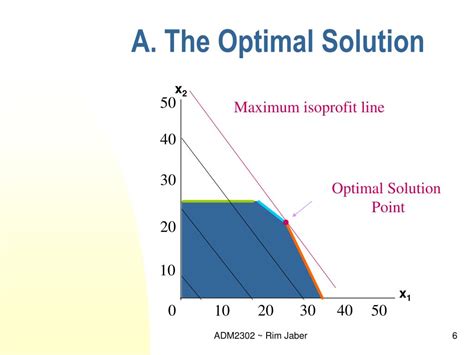How to optimize recovery to maximize muscle growth & daily energy for men?

The Underrated Secret to Gains: Masterful Recovery
For men striving to build muscle and maintain peak energy levels, the focus often heavily leans on intense workouts and heavy lifting. While crucial, the true magic — the actual growth and replenishment — happens during recovery. Optimizing this often-overlooked phase is not just about avoiding injury; it’s the express lane to maximizing muscle hypertrophy, boosting daily vitality, and achieving your fitness goals faster. This article delves into the essential pillars of recovery designed specifically for men aiming for significant gains in both the gym and daily life.

Pillar 1: The Power of Sleep – Your Body’s Ultimate Builder
Quality sleep is arguably the most potent recovery tool at your disposal. During deep sleep cycles, your body repairs damaged muscle tissues, synthesizes new proteins, and releases vital growth hormones like Human Growth Hormone (HGH) and testosterone – both critical for muscle development and fat loss. Insufficient sleep elevates cortisol (the stress hormone), which can break down muscle tissue and hinder fat metabolism.
Practical Sleep Optimization Tips:
- Consistency is Key: Go to bed and wake up at roughly the same time every day, even on weekends, to regulate your circadian rhythm.
- Create a Sanctuary: Ensure your bedroom is dark, quiet, and cool (ideally 60-67°F or 15-19°C).
- Wind-Down Routine: Avoid screens (phones, tablets, laptops) for at least an hour before bed. Instead, read a book, meditate, or take a warm bath.
- Limit Stimulants: Reduce caffeine and alcohol intake, especially in the afternoon and evening.
Pillar 2: Fueling Recovery – Precision Nutrition
What you eat after and between workouts directly impacts your body’s ability to repair, rebuild, and re-energize. Think of nutrition as the building blocks and fuel for your recovery engine.
Essential Nutritional Strategies:
- Protein for Repair: Aim for 1.6-2.2 grams of protein per kilogram of body weight daily, spread across multiple meals. Sources like lean meats, poultry, fish, eggs, dairy, and plant-based proteins are crucial for muscle protein synthesis.
- Carbohydrates for Energy: Post-workout, consume fast-digesting carbohydrates to replenish glycogen stores depleted during exercise. Throughout the day, opt for complex carbs (oats, brown rice, sweet potatoes) for sustained energy.
- Healthy Fats for Hormones: Don’t fear healthy fats from avocados, nuts, seeds, and olive oil. They play a vital role in hormone production, joint health, and reducing inflammation.
- Hydration is Non-Negotiable: Dehydration severely impairs performance and recovery. Drink plenty of water throughout the day, especially before, during, and after workouts. Electrolytes can also be beneficial during intense training.

Pillar 3: Active Recovery and Mobility – Beyond Rest
Rest doesn’t always mean complete inactivity. Active recovery involves low-intensity activities that promote blood flow, help remove metabolic waste products, and reduce muscle soreness (DOMS).
Incorporate These Practices:
- Light Cardio: A 20-30 minute walk, light cycling, or swimming can significantly aid recovery on rest days.
- Stretching and Foam Rolling: Improve flexibility, range of motion, and release muscle knots. Focus on static stretches post-workout or on rest days, and dynamic stretches pre-workout.
- Yoga or Pilates: Excellent for improving flexibility, core strength, balance, and reducing stress, all contributing to better recovery.

Pillar 4: Stress Management – Cortisol’s Impact on Gains
Chronic psychological stress can be as detrimental to your physical recovery as overtraining. When stressed, your body releases cortisol, which can counteract testosterone’s effects, promote fat storage, and break down muscle tissue. Effective stress management is paramount for optimal recovery and overall well-being.
Strategies to Combat Stress:
- Mindfulness and Meditation: Even 10-15 minutes a day can significantly lower stress levels.
- Hobbies and Recreation: Engage in activities you enjoy outside of the gym to provide mental breaks.
- Social Connection: Spend time with friends and family, fostering a strong support system.
- Time Management: Structure your day to avoid feeling overwhelmed.

Pillar 5: Smart Supplementation (When Necessary)
While whole foods should always be your primary source of nutrients, certain supplements can complement your diet and provide an edge in recovery and performance. Always consult a healthcare professional before starting any new supplement regimen.
Key Recovery Supplements:
- Whey Protein: A fast-digesting protein source ideal for post-workout muscle repair.
- Creatine Monohydrate: Supports ATP regeneration, leading to increased strength and power, and potentially aiding recovery.
- Branched-Chain Amino Acids (BCAAs): May reduce muscle soreness and aid in muscle protein synthesis, particularly if protein intake is insufficient.
- Magnesium: Essential for over 300 bodily functions, including muscle and nerve function, blood sugar control, and sleep.
- Omega-3 Fatty Acids: Possess anti-inflammatory properties that can reduce muscle soreness and promote overall health.
- Vitamin D: Crucial for bone health, immune function, and testosterone production.

Conclusion: The Holistic Approach to Maximizing Gains
Optimizing recovery for muscle growth and daily energy is not a singular action but a symphony of interconnected habits. By prioritizing quality sleep, dialing in your nutrition, integrating active recovery, managing stress effectively, and strategically using supplements, men can unlock their full potential. Remember, the effort you put into recovery is just as important as the effort you put into your training. Embrace these principles, and watch your strength, energy, and physique transform.









